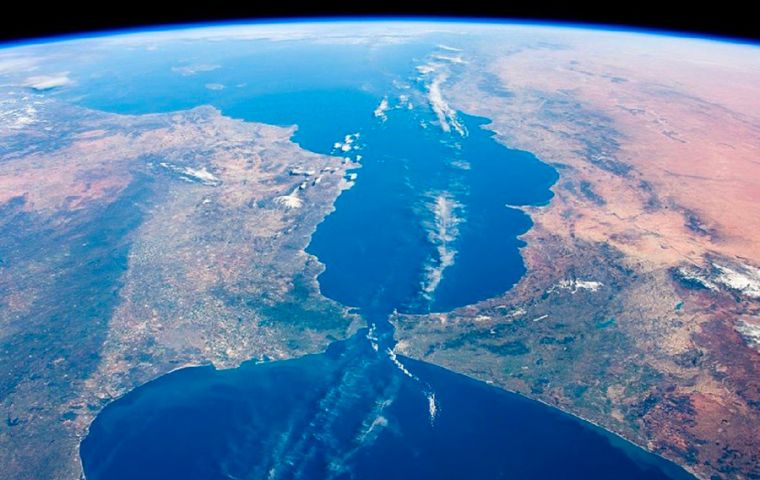MercoPress. South Atlantic News Agency
Spanish researchers speak of Gibraltar's “tropicalization”
 Spanish researchers speak of Gibraltar's “tropicalization”
Spanish researchers speak of Gibraltar's “tropicalization” A study by the Málaga-based Spanish Institute of Oceanography (IEO-CSIC) documents a “tropicalization” process in the Strait of Gibraltar and Alboran Sea, where rising water temperatures, Atlantic connections, exotic species invasions, and high human activity (e.g., maritime traffic and tourism) are driving changes in fish species composition.
The team recorded 25 new fish species in the Spanish Mediterranean, 23 previously undocumented, with a significant increase of over 6°C in the preferred temperature of new species, indicating a shift toward tropical species.
This trend is more pronounced in the Alboran Sea and Strait than in the Levantine-Balearic region. The displacement of native species by tropical ones, including species like the lionfish and whale shark, could disrupt trophic interactions and marine ecosystem stability.
The study highlights the role of climate change, human activities (e.g., ballast water, aquaculture escapes), and cryptic species identification in this process, with 36.4% of new species records linked to tropicalization.
Ongoing monitoring and integrating environmental and anthropogenic factors are recommended to manage marine biodiversity and guide conservation policies.
“The results show that the Alboran Sea and the Strait of Gibraltar are becoming particularly vulnerable to the effects of climate change,” explained José Carlos Báez, co-author of the study. This pattern “is not observed with the same intensity in the Levantine-Balearic demarcation, suggesting an uneven geographical distribution of the phenomenon,” he added.
”The displacement of native species by tropical species could alter trophic interactions (feeding interactions between living beings in an ecosystem) and compromise the stability of marine ecosystems,“ Davinia Torreblanca also pointed out. ”It is essential to continue monitoring these changes to anticipate their ecological consequences and properly manage marine biodiversity,” she further noted.




Top Comments
Disclaimer & comment rulesCommenting for this story is now closed.
If you have a Facebook account, become a fan and comment on our Facebook Page!